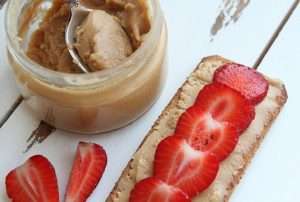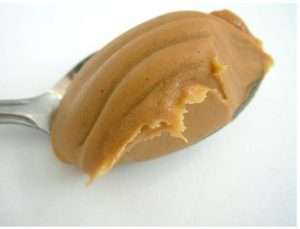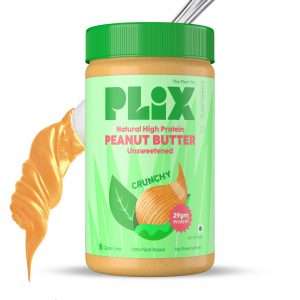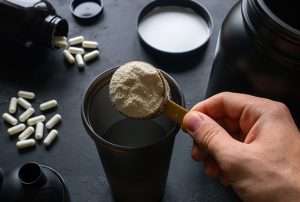Peanut Butter: Types & Nutrition Value

Peanut butter is an all-time favourite amongst adults and children alike. It is a protein-packed snack that is made from ground peanuts, which are usually roasted before blending them into a thick, delicious paste.
However, there are several brands that add ingredients, such as trans fat, oil, and sugar, to peanut butter which significantly decrease its nutritional value. Let’s understand the nutritional value and different types of peanut butter so that you can make an informed choice when choosing the right peanut butter for you.
Nutritional Information of 100% Natural Peanut Butter (standard 2 tablespoons serving)
The recommended amount of peanut butter is approximately 2 tablespoons. It contains:
Calories: Approximately 207 calories
Protein: 7-9 grams
Fat: 18 grams
Carbohydrate: 6 grams
Fibre: 3 grams
Sugar: 1 gram
Besides these, peanut butter is a great source of Vitamin E, B3, B6, manganese and magnesium. Some of the benefits of peanut butter include that it aids in weight management, lowers the risk of heart disease, reduces the risk of diabetes, and contains anti-cancer properties.
Types of Peanut Butter
1. Regular Peanut Butter
Regular peanut butter is what you easily find in supermarkets, which doesn’t need any refrigeration and you don’t need to give it a good mix every time. However, this is because it contains hydrogenated oil which allows it to stay in an attractive form. Hydrogenated oil is not healthy and should be avoided when possible. We recommend reading the label and avoiding such unnatural substances when making the purchase.
2. 100% Natural Peanut Butter
100% peanut butter is made only from the peanuts and oil present in the nuts. You don’t have to worry about any harmful ingredients here. However, you will need to keep the healthy peanut butter refrigerated to increase its shelf-life, and keep in mind that it might need a good mix before you use it.
3. Creamy Peanut Butter
Creamy or smooth textured peanut butter doesn’t contain any chunks of roasted peanuts. While some really tend to enjoy this creamy texture, it too sometimes contains hydrogenated oil, which is harmful. So, always read the label carefully before making a purchase.

4. Organic Peanut Butter
Organic peanut butter can be creamy or crunchy but will need refrigeration because there won’t be any preservatives added. This is a healthy option that you should consider.
5. Crunchy Peanut Butter
Crunchy peanut butter has bits and pieces of roasted peanuts present in the butter, which for some, elevates the taste because of the added texture.
These are some of the most common types of peanut butter that you will easily find in the market today. Always make sure that the brand you are choosing is using good ingredients and matches your health goals.
If you are someone who is a peanut butter lover and health conscious, we highly recommend trying Plix’s Peanut Butter varieties. At Plix, we put your health first while bringing you delicious products which are 100% natural including Plix’s 100% natural peanut butter.
Plix’s High Protein Peanut Butter contains Ashwagandha and Brahmi and brings you 25 grams of protein in a serving of 100 grams. It comes with a plethora of benefits, including enhancing your brain functionality and increased energy levels.

Plix also brings you the 29g High Protein Natural Peanut Butter which is Unsweetened and crunchy. This peanut butter is unsweetened and high in protein. It helps you control your cholesterol and to keep your sugar levels in check.
Finally, Plix brings you a delicious combination of High Protein Chocolate Peanut Butter with Moringa and Sea Salt which is so delicious that you won’t believe how healthy it is!
All three options from Plix Life are 100% natural peanut butters and the healthiest peanut butter options available in the market. So, choose your preferred flavour and place your order today!














